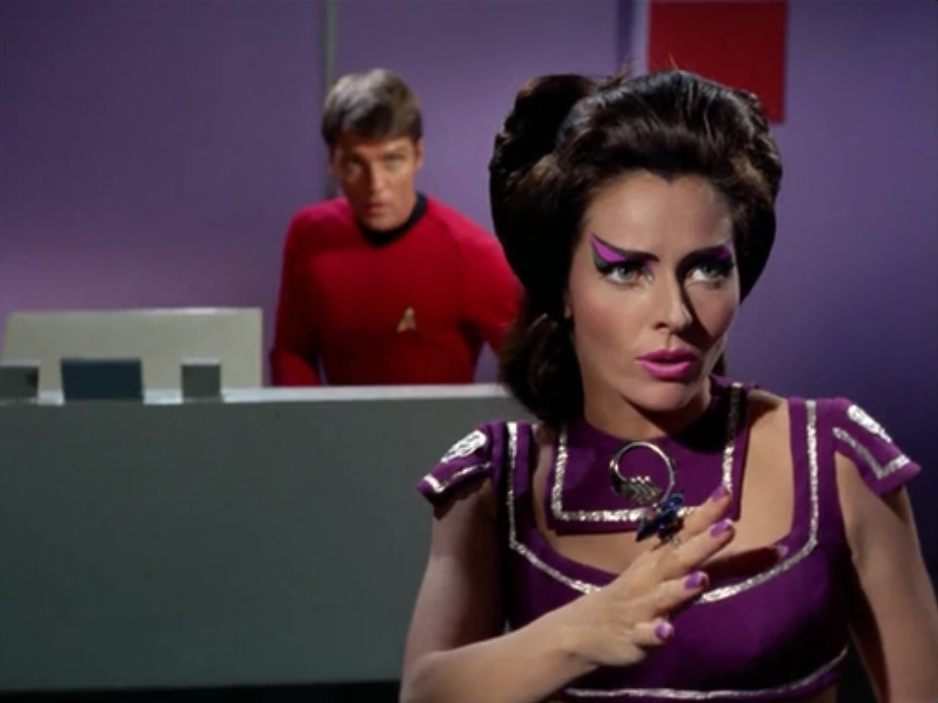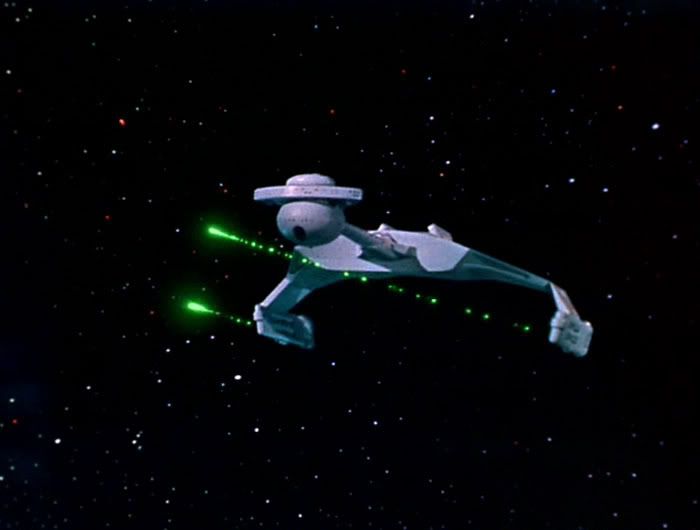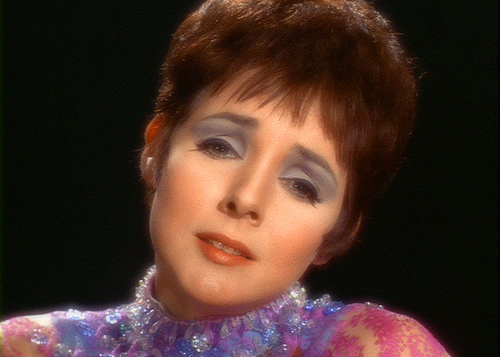So, "That Which Survives" is later echoed in "Arsenal of Freedom" (Next Generation), "Civil Defense" (Deep Space Nine), "Prototype" (Voyager). It's basically an episode about a defense mechanism that outlasts both its civilization and its need.
Because it's this series, it takes the form of a hot chick, naturally.
 |
| via Let's Watch Star Trek. Many redshirts were killed to bring us this information. |
And to a certain point, it even seems as if it's a Sulu episode, too. (How often does that happen? How about...never?) He's part of the landing party, and when it seems the Enterprise has been lost he begins offering suggestions. Sure, Kirk dismisses them. But Sulu's making them. It's another small step toward that captaincy waiting in his distant future. It's him being almost taken seriously! And then later, the hot chick seems like she's choosing him rather than Kirk! That definitely never happens! Weird circumstances, sure, but that's one of the story beats. So if you're a fan of Sulu, this an episode to catch in that regard as well.
Wonders never cease, right? And, and that title? It's Kirk's summation of the whole experience. Naturally. Beauty survives. All he'll remember is the hot chick.
four quarter analysis
franchise * series * essential * character
notable guest-stars:
Lee Merriwether






